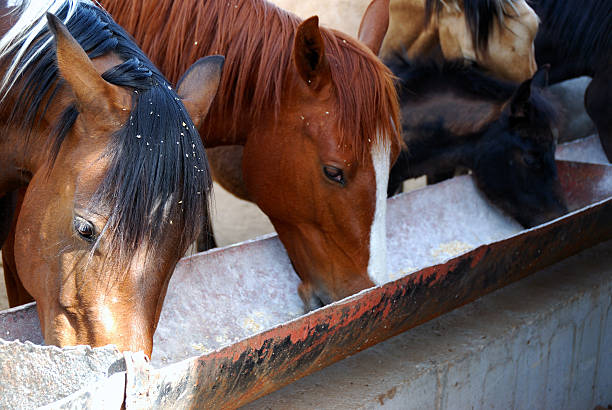Published: April 2021 | Updated: August 2023 Forage is the most important part of any...
When to use ration balancers for horses
When to use ration balancers for horses With so many different types of horse feed on the market, it can be difficult to decide which one is best for your...
Understanding horse vitamins and minerals
Vitamins and minerals, aka micronutrients, are not needed in large amounts by horses and therefore might be easy to overlook in the diet. However, these tiny but mighty nutrients are...
Is high fat horse feed the answer for muscle disorders?
If you have a horse that has been diagnosed with a genetic muscle disorder such as Polysaccharide Storage Myopathy (PSSM) or Recurrent Rhabdomyolysis (RER), you’ve likely heard about the benefits...
Why is digestible energy for horses important?
The physical capabilities of the horse are astounding. Whether it’s jumping six foot fences, racing at over 40 miles per hour, or gliding through a pirouette in the dressage arena,...
The big 3 of performance horse nutrition
Feeding horses can be a constant balancing act since nutrient requirements change depending on the horse’s age, level of exercise, metabolism, as well as several other factors. Chances are no...
How to feed a horse (the right way!)
Key Takeaways: Forage should be the basis of every equine diet; horses require at least 1% of their body weight (BW) in hay everyday. Concentrate meals should not exceed 0.5%...






